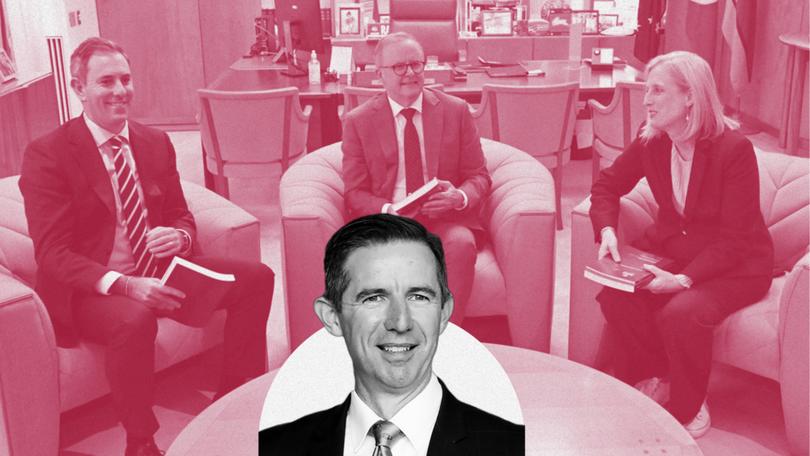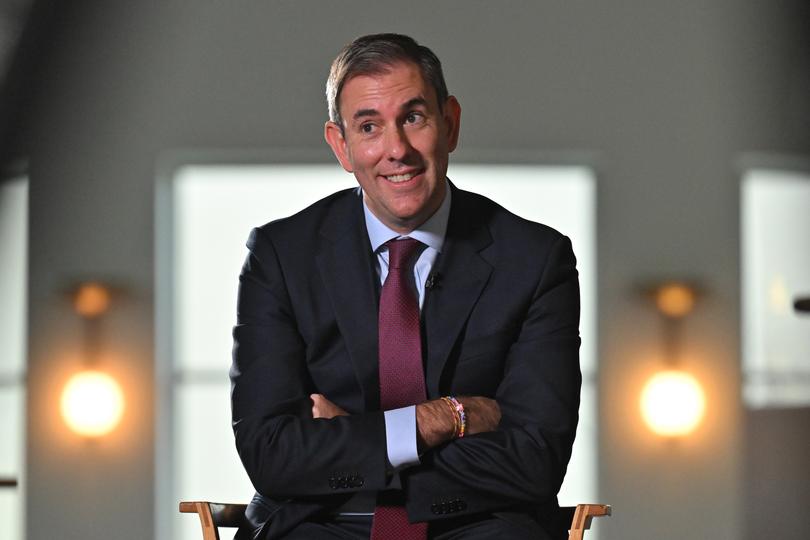SIMON BIRMINGHAM: There will be 20% more public service workers under Labor but they’re not nurses or cops
SIMON BIRMINGHAM: What do Bathurst and Devonport have in common? There are plenty of car lovers in both, but they are also about the same size as the increase in public servants employed by the Government.

What do Bathurst and Devonport have in common? I’m sure there are plenty of car lovers in both, but they are also about the same size as the increase in public servants employed by the Albanese Government.
Just pause and think about that for a minute. After just two years in power, the Albanese Government is on track to add the entire population of Bathurst or Devonport to the public service payroll.
If your imagination can’t quite picture those regional cities, try adding all of the people in Albany, Warrnambool, or Mount Gambier to the taxpayer teat.
Sign up to The Nightly's newsletters.
Get the first look at the digital newspaper, curated daily stories and breaking headlines delivered to your inbox.
By continuing you agree to our Terms and Privacy Policy.If you’re a Queenslander, Labor’s ballooning public service equates to more than the entire population of Maryborough, but a little less than the city of Gladstone. For now.
Let’s be precise. Anthony Albanese has blown out the size of the public service from 173,558 full-time equivalent public servants when he took office and is planning to have 209,150 by next year.
That’s 35,592 extra public servants. A 20.5 per cent increase.
How many of these are nurses in hospitals, teachers in schools, or police on the beat? None.
How many are extra women and men serving our nation in uniform? None.
Astonishingly, given the defence and security challenges the world faces, Labor has overseen a reduction in Australian serving defence personnel by 2640 over the last year alone.
The Albanese Government’s most successful policy to date is to create more Canberra-based bureaucrats.
Over the years I’ve worked with hardworking, smart, and diligent public servants. As finance minister in the previous government, some of them even helped me to keep a cap on public service numbers.
My criticism isn’t about the public servants, but about government priorities.
Mr Albanese’s unprecedented growth in public servants shows zero budget restraint and demonstrates that this Labor Government is embracing big government like none before it in the modern era.
Decades of economic orthodoxy have also been thrown out the window as the wise elders of Labor now gamble taxpayer money on what they pick to be the investment winners of the future.

A solar manufacturer here. A quantum computer there. A lithium processor over there.
Billions of your taxes are gambled under the guise of a “Made in Australia” slogan, with no transparent process, no published financial modelling, and no details on how taxpayers get accountability for how their dollars are spent.
Just Anthony Albanese, Jim Chalmers and mates sitting in a windowless room picking winners. At least they’ve refrained from punting your money on the fourth at Randwick. So far.
With such profligacy, it is little wonder Labor’s latest Budget saddles Australians with more spending and more debt, while keeping inflation higher for longer and driving up unemployment.
Astoundingly, this Budget has grown the size of forecast deficits compared with the most recent Budget forecasts, despite even bigger revenue windfalls coming through.
The Albanese Government inherited an economy, a budget and good fiscal fortune that has delivered Australia two budget surpluses. They never forecast or budgeted for these surpluses; they were just in the right place at the right time.
Never has a Government enjoyed such unexpected booms in tax revenue. Over the four-year budget cycle, it’s up $367 billion since the last Coalition budget.
Nearly 90 per cent of this windfall is either company tax or income tax. Either you’re paying more tax, your employer is, or your investments are. For many Australians, all three are paying much more.
Tax windfalls aren’t just the result of commodity prices, but also another consequence of inflation, which in Australia has stayed higher for longer under Labor than in many comparable nations.
Yet, despite $83 billion more in expected tax collections next financial year than when they were elected, Labor’s Budget is to go straight back into deficit. Why? Spending is the only answer.
And there we have it. Labor’s spending drives the Budget back into deficit. Labor’s spending keeps inflation higher for longer. And Labor’s spending will fund record numbers of new public servants. All while you pay record levels of tax.
